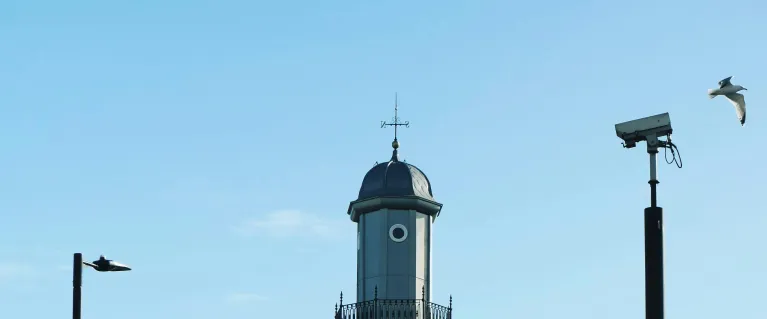
GLA General CCTV privacy notice
This page was updated on: 1 October 2025
The GLA is committed to protecting your privacy and personal data when you contact us or use our services.
This page outlines our obligations and your rights under data protection legislation, which regulates the use of personal information by all private and public-sector organisations.
Who we are and what we do
The Greater London Authority (GLA) – also known as City Hall – is London’s regional government and the home of the Mayor of London, the London Assembly and the staff who support them. Find out what we do and who we work with.
The GLA is at the centre of the wider GLA Group. The GLA is a separate public authority to its functional bodies and does not automatically hold, or have a right of access to, personal data collected by other organisations in the GLA Group – such as Transport for London.
Similarly, the GLA does not generally hold information on behalf of London’s borough councils.
If you have any queries about how these other organisations use your personal information, you need to contact them directly.
The Data Protection Officer (DPO) for the GLA, supports the GLA, including London Assembly Members and the Greater London Returning Officer.
Contact details for the GLA DPO can be found on our your privacy rights page.
CCTV data and why we handle personal information
The GLA has in place Closed Circuit Television surveillance (CCTV), including Body Worn Cameras (BWC) with audio and electronic Access Control Systems installed within and around its premises at the City Hall, in Kamal Chunchie Way, London E16 1ZE and in use at Trafalgar Square London and Parliament Square Gardens (BWCs only). Some CCTV cameras in specific higher risk area at City Hall are enabled with audio recording.
The use of CCTV, BWCs and electronic Access Control Systems is an essential part of the layered protective security measures deployed across the GLA’s core sites at City Hall and Trafalgar Square. At Parliament Square Gardens there are no fixed CCTV cameras, instead BWCs are used when necessary.
The data captured on CCTV and electronic Access Control System are classed as identifiable personal data. GLA is committed to protecting an individual’s privacy and personal data when using GLA facilities.
Under data protection legislation, the GLA is only allowed to use personal information if we have a valid reason (known as a 'legal basis') to do so.
The 'legal bases' relied on to process the personal data we collect via CCTV or BWCs:
- Article 6(1)(c) (legal obligation)
- Article 6(1)(e) (public task)
- Article 6(1) (d) (vital interests), in emergency situations only.
For special category data, we rely mainly on the condition at Article 9(2)(g) - Reasons of substantial public interest within the Data Protection Act 2018. However there may be occasions where we will rely on other conditions such as:
- Article 9(2) (b) (employment, social security and social protection) with the Data Protection Act 2018 Schedule 1 Part 1 condition
- Article 9(2) (c) (vital interest) in an emergency
- Article 9(2) (f) for legal claims or judicial acts
BWCs when switched on capture both visual and audio recordings. A limited number of CCTV cameras at City Hall also captures audio recordings in locations where there is a higher risk of an incident occurring and accurate evidence is required. This serves as a safeguard to both staff and visitors to City Hall.
If a footage and/or recording captures crime being committed, the GLA will rely on Article 10 UK GDPR which is met by the article 6 lawful basis of 6(1)(c) and (e) same as for personal data.
Explaining how we use and protect your information
We store images from CCTV and body worn cameras, including audio recording for 30 calendar days. Images and recording are deleted at the end of the retention period, unless required for a formal investigation.
Sharing personal information
The GLA will not sell your personal information to anyone for any reason.
We do not share your personal information with any third parties unless required to do so by law, e.g. law enforcement agencies such as the police, or as part of an investigation involving a third party, such as a contract partner. Please do refer to the relevant privacy notices on our website for more information.
Protecting your personal information
Your trust is very important to us, and we are strongly committed to keeping your personal data safe. We will take all necessary measures to ensure your personal information is properly protected and secured. This includes having appropriate technical and organisational arrangements to secure your information.
Changes to our privacy pages
We may need to update our privacy pages every so often. The 'last updated' date at the bottom of this page will also change. Any changes to these privacy pages will apply to you and your data immediately, so please check back here regularly. Your continued use of the site will mean that you accept any revisions.
If these changes directly affect how your personal data is processed, we will take reasonable steps to let you know.